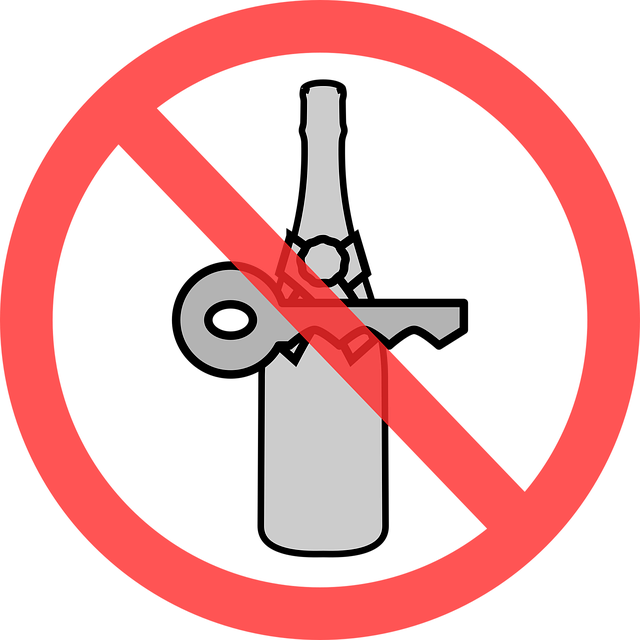Oregon DUI Guide: Navigating Laws, Defenses & Rights

The Oregon DUI guide outlines strict laws and penalties for driving under the influence. Key factors…….
We are At Your Service
In the pursuit of safer driving practices, states worldwide are continually evolving their laws and strategies to combat drunk and drugged driving. Oregon, with its progressive legislation and robust defense mechanisms, stands as a notable example. This comprehensive article delves into the intricate world of Oregon’s DUI (Driving Under the Influence) laws, exploring how these regulations are shaped, their global impact, and the innovative strategies employed to defend against such charges. By understanding this dynamic landscape, drivers can make informed choices and advocates can offer robust defenses, ultimately contributing to a reduction in traffic fatalities caused by impaired driving.
Oregon DUI laws refer to the state’s legislative framework designed to deter and penalize individuals who operate motor vehicles while under the influence of alcohol or controlled substances. These laws encompass several critical components:
Blood Alcohol Content (BAC) Limits: Oregon has a strict BAC limit of 0.08% for drivers aged 21 and over, adhering to national standards. For commercial drivers and those under 21, the legal limit is even lower, at 0.04%.
Impairment Standards: Beyond BAC levels, Oregon’s laws also address impairment caused by drugs or a combination of alcohol and drugs. This includes evaluating a driver’s ability to safely operate a vehicle based on field sobriety tests and other evidence.
Penalties and Consequences: Convictions for DUI in Oregon result in severe penalties, including fines, license suspension, jail time, and mandatory safety courses. Repeat offenders face even stricter penalties, reflecting the state’s zero-tolerance policy.
Oregon’s DUI laws have evolved over the years, influenced by national trends and local initiatives. Historically, the state’s approach focused on strict enforcement with high penalties. However, recognizing the importance of public safety without unduly burdening responsible drivers, Oregon has implemented a more balanced strategy:
1980s: Oregon raised its BAC limit to 0.15%, aligning with national standards at the time. This period saw increased police presence and publicity campaigns.
1990s: Recognizing the limitations of strict punishment alone, Oregon began incorporating education and treatment components into its strategy. The state launched public service announcements and implemented mandatory safety courses for first-time offenders.
2000s: Oregon further refined its laws by adopting a more nuanced approach to sentencing, considering mitigating factors for first-time offenders while increasing penalties for repeat offenders. This period also saw the expansion of community-based programs focusing on prevention and intervention.
Present Day: Today, Oregon’s DUI laws are known for their comprehensive nature, combining strict enforcement with a focus on public education, treatment, and rehabilitation. This balanced approach reflects the state’s commitment to both road safety and individual accountability.
Oregon’s DUI laws and strategies have global implications, influencing international discussions and initiatives aimed at curbing drunk driving:
International Collaboration: Oregon actively participates in international collaborations, sharing its best practices with other nations through organizations like the International Association of Chiefs of Police (IACP). This knowledge exchange fosters a global community dedicated to improving traffic safety.
Global Trends: Globally, there is a growing emphasis on standardized DUI laws and uniform BAC limits. Oregon’s adherence to these standards has contributed to a more unified approach worldwide, making it easier for international travelers to navigate different jurisdictions.
Regional Variations: While global trends provide a framework, regional differences persist. Some countries maintain lower BAC limits than Oregon, while others focus more on public education rather than strict penalties. These variations reflect cultural and legal disparities across the globe.
The economic aspects of Oregon’s DUI laws are multifaceted, impacting both the state’s economy and individual financial landscapes:
Cost of Conviction: DUI convictions can have significant economic consequences for individuals, including fines, increased insurance premiums (up to 400% in Oregon), license reinstatement fees, and potential legal costs. These expenses can disproportionately affect lower-income drivers, exacerbating existing economic disparities.
Economic Impact on the State: On a broader scale, Oregon’s DUI laws contribute to the state’s economy through revenue generation from fines and penalties. However, the economic impact of impaired driving extends beyond these figures, including medical costs associated with accidents, lost productivity, and reduced quality of life for victims and their families.
Tourism and Travel: Oregon’s reputation for strict but fair DUI laws influences tourism and travel patterns. While strict enforcement may deter some potential impaired drivers, it also attracts visitors who value the state’s commitment to road safety, promoting responsible tourism.
Technological innovations play a pivotal role in modernizing Oregon’s DUI laws and strategies:
Breathalyzer Technology: The breathalyzer, a device that measures BAC levels through exhaled air, has been refined over the years. Modern breathalyzers offer increased accuracy and reliability, ensuring more consistent results during field sobriety tests.
DWI (Driving While Impaired) Detection Systems: Advanced systems use a combination of sensors, cameras, and other technologies to detect impaired driving patterns. These systems can alert law enforcement in real-time, enhancing their ability to identify and stop at-risk drivers.
Data Analytics for Predictive Policing: Law enforcement agencies in Oregon utilize data analytics to predict high-risk areas for DUI incidents. By analyzing historical data, they can strategically deploy resources, potentially reducing the number of impaired drivers on the road.
Mobile Apps and Public Awareness: Smartphone apps designed to promote safe driving have gained popularity. These apps often offer tools for driver impairment assessment, ride-sharing integration, and immediate access to emergency services, empowering individuals to make responsible choices.
Oregon’s DUI laws are shaped by a comprehensive policy framework, including:
State Legislation: The Oregon Legislature plays a central role in enacting and amending DUI laws, reflecting public input and the latest research on impaired driving. Regular reviews ensure that policies remain effective and relevant.
Department of Transportation (ODOT) Initiatives: The ODOT actively promotes traffic safety through various programs, including public awareness campaigns, driver education courses, and infrastructure improvements aimed at reducing DUI incidents.
Court Systems and Sentencing Guidelines: Oregon’s court system enforces DUI laws, with judges following sentencing guidelines that consider factors like BAC level, prior offenses, and mitigating circumstances. This consistency ensures fairness and predictability in outcomes.
Interagency Collaboration: Effective collaboration between law enforcement agencies, the judiciary, and state departments ensures a coordinated approach to DUI prevention and enforcement. Regular meetings and shared resources enhance overall efficiency.
Despite its robust framework, Oregon’s DUI laws face several challenges and criticisms:
Disproportionate Impact on Minorities: Critics argue that Oregon’s DUI laws may disproportionately affect minority communities, with potential biases in traffic stops and sentencing. Addressing these disparities requires ongoing evaluation and adjustments to ensure fairness.
Underreporting and Misdiagnosis: Impaired driving can sometimes be misclassified or underreported, especially when involving drug use. Improved training for law enforcement and medical professionals can enhance accuracy in diagnosing and documenting impairment.
Funding for Prevention Programs: While Oregon invests in DUI education and treatment, ongoing funding for these programs remains a challenge. Adequate financial support is essential to sustain long-term public safety initiatives.
To overcome these challenges, the following strategies can be implemented:
Cultural Sensitivity Training: Providing law enforcement with cultural sensitivity training can help mitigate biases and improve interactions with diverse communities, fostering trust and cooperation.
Advanced Impairment Testing: Investing in advanced impairment testing technologies, such as field sobriety tests designed for drug impairment, can enhance accuracy and address underreporting concerns.
Community-Based Prevention Programs: Expanding community outreach and prevention programs, particularly in underserved areas, can empower individuals to make responsible choices and reduce the overall incidence of DUI.
Diverse Sentencing Options: Exploring alternative sentencing options for first-time offenders, such as diversion programs or community service, can offer a more nuanced approach while still holding individuals accountable.
Overview: Oregon implemented a comprehensive teen DUI prevention program that includes strict parental involvement requirements for first-time offenders aged 16 or 17. The program mandates immediate suspension of driving privileges and requires parents to attend educational workshops.
Results: This initiative has shown significant success in reducing repeat DUI offenses among teens. The combination of strict penalties and parental involvement encourages responsible decision-making, leading to a decrease in impaired driving incidents involving minors.
Lessons Learned: Involving parents as key stakeholders in their children’s safety can be an effective strategy. Parental education and active participation reinforce the seriousness of DUI laws and foster a culture of responsibility within families.
Overview: Oregon has pioneered community-based treatment programs for DUI offenders, focusing on long-term rehabilitation rather than strict punishment. These programs offer counseling, support groups, and access to medical care tailored to individual needs.
Results: Participants in these programs have shown improved outcomes, including reduced recidivism rates. By addressing underlying issues such as substance abuse or mental health problems, these initiatives promote lasting behavioral changes.
Lessons Learned: A holistic approach to DUI offenders can lead to more positive outcomes. By providing comprehensive support and treating the root causes of impaired driving, communities can foster recovery and reduce future crimes.
The future of Oregon’s DUI laws and defense strategies is poised for exciting developments:
Technological Integration: Advanced technologies will continue to shape DUI enforcement, with more sophisticated breathalyzer devices and integrated data systems enhancing accuracy and efficiency.
Personalized Defense Strategies: As research advances, personalized defense strategies may emerge, considering individual factors like genetics and environmental influences to offer tailored arguments in court.
Focus on Commercial DUI: With the rise of ride-sharing services and delivery vehicles, Oregon may place greater emphasis on commercial DUI laws, ensuring safety for both drivers and passengers.
Global Collaboration and Standardization: Oregon’s commitment to international collaboration will likely intensify, leading to more uniform global standards for DUI laws and best practices.
Oregon’s DUI laws and defense strategies represent a nuanced approach to tackling impaired driving, combining strict enforcement with education, treatment, and rehabilitation. By understanding the historical context, global impact, economic considerations, technological advancements, and ongoing challenges, both policymakers and individuals can contribute to safer roads.
As Oregon continues to refine its strategies, the state serves as a model for other jurisdictions worldwide, demonstrating that a comprehensive, balanced approach can lead to significant improvements in traffic safety without compromising individual liberties. Through ongoing research, public engagement, and collaborative efforts, Oregon’s DUI laws will evolve to meet the evolving needs of a safer and more responsible driving culture.
Q: What is the legal BAC limit for commercial drivers in Oregon?
A: The legal BAC limit for commercial drivers in Oregon is 0.04%, significantly lower than the limit for non-commercial drivers (0.08%).
Q: Can a first-time DUI offense result in jail time?
A: For first-time offenders, jail time is possible but varies based on circumstances. Typically, it involves a short sentence or community service as part of a diversion program.
Q: How do Oregon’s DUI laws address drug-impaired driving?
A: Oregon has strict laws against driving under the influence of drugs or a combination of alcohol and drugs. Field sobriety tests and urine/blood analysis are used to determine impairment, with penalties similar to those for alcohol-impaired driving.
Q: Are there any defenses available for DUI charges in Oregon?
A: Yes, several defenses exist, including challenging the admissibility of breathalyzer results, questioning the validity of field sobriety tests, and asserting that law enforcement lacked reasonable suspicion for a traffic stop. Legal counsel can provide tailored advice based on specific cases.
Q: How can I protect myself from a false DUI accusation?
A: If you find yourself in a situation where you might be accused of DUI, remain calm, cooperate with law enforcement, and request a lawyer promptly. Avoid making any statements until your rights are read, and ensure all evidence is handled appropriately.

The Oregon DUI guide outlines strict laws and penalties for driving under the influence. Key factors…….

In Oregon, DUI is a serious offense with strict BAC laws. A robust defense strategy challenges test…….

In Oregon, DUI is a criminal offense with strict laws. First-time offenders face fines, license susp…….

In Oregon, DUI charges carry severe penalties, making a strong case defense crucial. Legal experts s…….